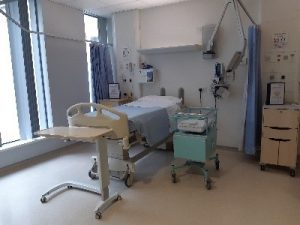This section aims to prepare you for what to expect if you are booked for an elective (planned) Caesarean section.
The majority of women undergoing a planned Caesarean section will be looked after using an enhanced recovery care package on the Enhanced Recovery Bay. This includes early food intake after surgery, early mobilisation and also a planned discharge time. You should plan to be going home on the day following your Caesarean section if all has gone well for you and your baby. It’s a good idea to plan for this, and make sure you have a supply of simple pain relief in the house, such as paracetamol and ibuprofen.
You will be asked to attend pre-operative appointment two days or so before the operation. At this appointment, the member of staff from the team will explain the procedure on the day, ensure you have your pre-operative medications and drinks, and conduct some blood tests. The member of staff will also confirm if the operation will be in the morning or the afternoon at this appointment. They will let you know what time to fast from prior to your surgery and what time to come in.
For Oxford Road Campus patients
Please ensure you and your birth partner attend the reception area of Ward 64, second floor, at Saint Mary’s Hospital.
For Wythenshawe patients
Please ensure you and your birth partner attend the Enhanced Recovery Bay on ward C2. It is located on the first floor.
Oxford Road Enhanced Recovery
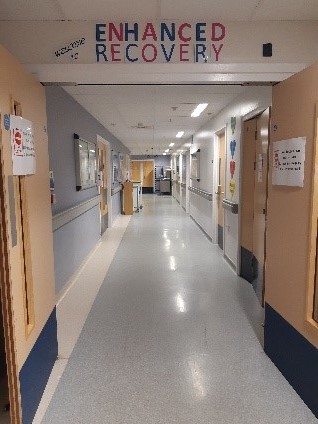
For Oxford Road patients
Please ensure you and your birth partner attend the reception area of Ward 64, second floor, at Saint Mary’s Hospital.
Wythenshawe Enhanced Recovery
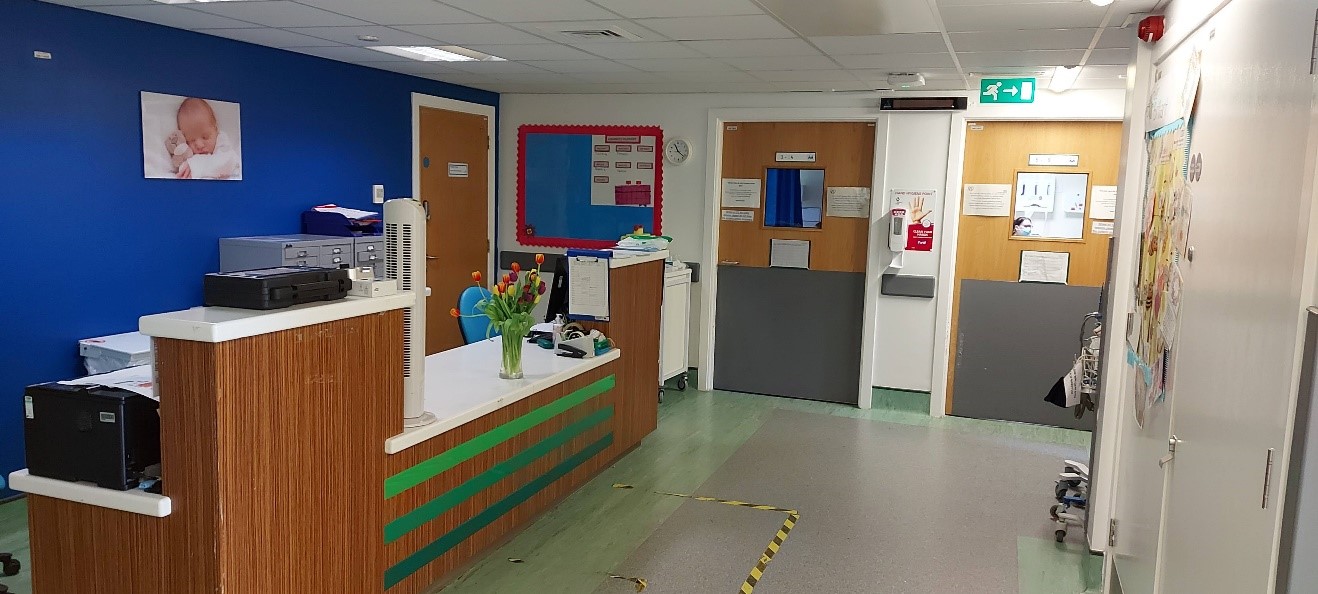
For Wythenshawe patients
Please ensure you and your birth partner attend the Enhanced Recovery Bay on ward C2. It is located on the first floor.
Before coming into hospital
- Please do not shave/wax your groin area as this can increase the risk of infection.
- Ensure that you have a shower at home. Use a body wash or soap and pay particular attention to your groin area and belly button during washing.
- Please do not use creams or lotions on your abdomen after your shower.
- Please remove all jewellery, body piercings, make-up and false nails before coming in to hospital.
What To Bring In To Hospital
In a small bag make sure you bring for yourself:
- Warm clothing and a dressing gown. Staying warm is very important. It reduces your risk of post-operative infections and other complications. Please tell staff if you feel cold.
- Slippers
- A snack to eat after delivery
- Maternity pads
In a small bag for your baby make sure you bring:
- At least 3 baby grows (newborn)
- At least 3 baby vests (newborn)
- A hat
- A small pack of nappies
- Wipes or cotton wool
- First Baby Milk Formula Starter Pack (ready-made milk) if you are planning to bottle feed. (We do not have the facilities to store opened bottles of formula).
On the day of your operation
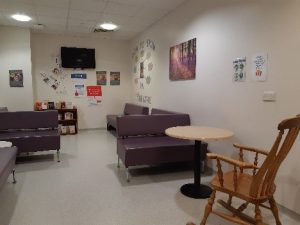 Staff You Will Meet
Staff You Will Meet
You will then be seen by an anaesthetist and an obstetrician when you arrive to have your baby.
Oxford Road patients: Once the pre-delivery checks are complete you will be asked to change in to a hospital gown and wait in a waiting room until you are called to theatre. The midwifery team will be available should you need anything while you wait.
When you are called to theatre a midwife will walk you to the theatre waiting room. Here your birth partner will get changed in to theatre scrubs.
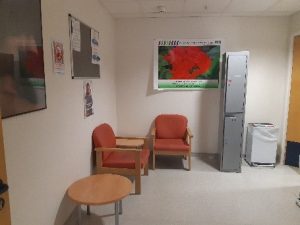 A theatre nurse will then meet you in the waiting room and bring you in to theatre.
A theatre nurse will then meet you in the waiting room and bring you in to theatre.
At Wythenshawe you will be shown to your bed on arrival and you and your partner are welcome to wait there until the midwife escorts you to theatre. If your operation is later in the morning you will be given some water to drink. Your midwife will let you know when it’s time to get changed.
Seeing And Holding Your Baby
You will see your baby immediately after delivery. To keep your baby warm we can place them in skin-to-skin with you or they can also be placed skin-to-skin with your birth partner. Alternatively, they can be wrapped in blankets and given to you or your birth partner to hold.
At Oxford Road in some situations a midwife may see that your baby requires further assessment and will take them to the neighbouring room called the resus room.
At Wythenshawe your baby will be cared for in the same room as you at all times unless transfer to Special Care is required.
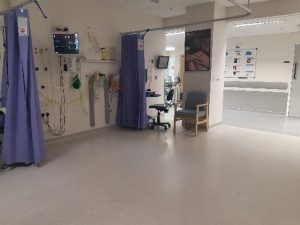 What To Expect After Your Operation
What To Expect After Your Operation
Immediately after your operation you will go to the recovery area.
Providing your operation has been straightforward, you will be offered food and drink in the recovery area. Oxford Road patients can eat the snack brought from home.
Your midwife will be able to assist you with feeding your baby for the first time should you need support.
After approximately 1 hour in recovery you will return to the ward.
After about 6-8 hours your catheter will be removed and you will be encouraged to get up and go to the toilet. We will give you strong, regular pain relief throughout your stay.
Early mobilisation will help you to recover faster. You are encouraged to have 3 short walks within 24 hours of your operation.
If you require blood thinning injections you will be shown how to administer them. You will need to administer these yourself when you are discharged for the number of days the doctor has prescribed. This medicine is important as it reduces your risk of blood clots.
Ensure you have adequate supplies of simple pain relieving medications at home as these are no longer available on discharge from hospital. (Paracetamol 1g every 4-6 hours, no more than 8x500mg tablets in a 24 hour period and Ibuprofen 400mg every 6-8 hours, not more than 6x200mg tablets in a 24 hour period.)
Before You Are Discharged
In preparation for your discharge from hospital:
- Oxford Road patients will be seen by the physiotherapy team for post-procedure advice.
- The pharmacy team will prepare the medication for you to go home with.
- The hearing screening team will assess your baby’s hearing.
- A midwife will complete the formal newborn examination.
Expected length of stay
Providing all is well following your caesarean section you will be discharged home the following day. (As per NICE guidelines 2011).
Longer stays will be planned as required on an individual basis.
 In this section
In this section
